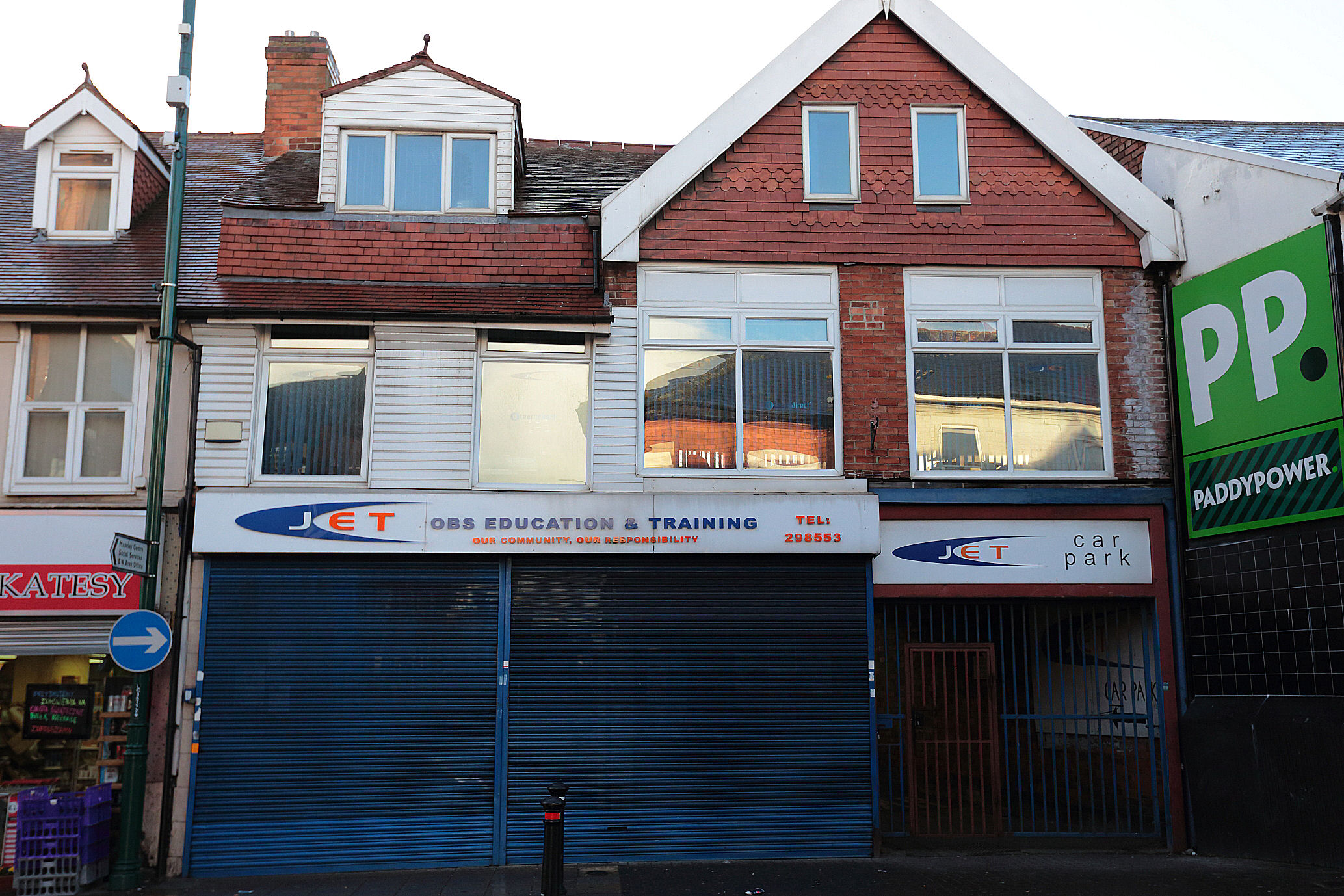The Budget is one of the few major decisions voted on by all Councillors. It sets out the Council’s plan for delivering services and the means by which it will raise the funds to pay for them. For over 10 years the Budget has been dominated by the need to find substantial savings, involving cuts to services. Where, and how, those cuts are made is subject to political influence and should be scrutinised, carefully.
The Cabinet (Labour since May 2023), together with the Council Officers, produce the draft Budget proposal; this is then put out for public consultation. The first occasion for other Councillors to challenge and ask questions, is in the cross-party Executive Scrutiny Board ; this is chaired by the previous Tory Leader of the Council ( 5 years to May 2023), Cllr Chris Poulter.
As Chair he is paid an additional £8,642 per year for attending ~12 meetings; thus far he has not attended 3 of them.
The rest of the Committee is made up of 11 Cllrs, 5 Labour, 3 Conservative, 1 Lib Dem, 1 Reform, and 1 Independent.
The quality of the scrutiny will depend on the 7 non-Labour Cllrs on the Board.
The Executive Scrutiny Board for next year’s Budget (2024/25) took place on the 15 January 2024. It lasted nearly 2 hrs; over 20 Senior Council Officers were present, together with the Cabinet and Leader of the Council, Cllr Shanker.
Just 4 out of the 7 Opposition Councillors asked a question.
The Board has the scope to make recommendations to the Cabinet.
As Cllr Poulter was the Chair of the meeting, he dominated the proceedings. His approach seemed to focus, principally, on defending his record, and that of the Tory Government, and local politicking.
In the early part of the meeting he got fixated on Hospital discharge times which are not a Council responsibility.
He then led the meeting on the subject of the Sinfin Incinerator; a project which, currently, has little incremental impact on the revenue budget. He convinced himself that there was a delay in the “soft market” procurement exercise, with a consequential delay on the signing of the Inter-Authority Agreement ( between Derby City and Derbyshire County Councils). He maintained that this would create additional revenue costs not included in the Budget. Sam Dennis, Director Communities, confirmed that the business case protects against a 2 year delay, and that the signing of the Inter-Authority Agreement was not planned until October 2024.
All of which Poulter would have been aware of from his time as Leader.
Poulter then brought up the subject of reserves which were depleted from ~£36m in 2018 down to practically zero in the last 5 years during his Administration. Surprisingly, he asked Alison Parkin (Chief Finance Officer) about the state of the reserves and whether they were at the minimum level. She confirmed:
“We are facing this financial Year (23/24) a significant overspend which would reduce those reserves to a level below which we’re comfortable…and the desired level”
Poulter, somewhat theatrically, turned to Cllr Shanker (Labour Leader of the Council) to challenge him on why he was allowing the Reserves to be depleted to practically zero. What Poulter had not understood from the Chief Finance Officer’s answer, was that the overspend of ~£6m (2023/24) which was initiated from his time in Office, was the factor depleting the Budget Reserve to zero, and not the Budget for 2024/25, which is planning to contribute to it.
Cllr Shanker : “…the inherited position from your administration was around a £6m overspend….”
Cllr Poulter : ” …with a safe level of reserves…(pointing at the Chief Finance Officer)…”
Cllr Chanker : “….no it’s not with a safe level of reserves. Where do you think overspends go? “
Cllr Poulter : ” …you’ve just heard that!”
Cllr Shanker : ” Alison’s just told you – it’s that overspend that took money out of reserves…you do need some lessons in the Council’s finances….”
Cllr Poulter also challenged the position on Property Rationalisation (asset disposals).
Poulter asked Emily Feenan, Head of Legal Services “Are we meeting targets that we set ourselves in relation to rationalisation”
Emily Feenan: “There hasn’t been a target set for capital assets to be disposed of. It doesn’t exist. What we do is review our assets on a regular basis against certain criteria…but there is no target”
Poulter : ” There is potential for significant income, do we need targets to make sure that we keep on top of the disposal programme”
Feenan : ” I don’t think we require a target. Whether we dispose of an asset depends on the needs and requirements of the service at any given time. We have a corporate responsibilty to keep reviewing those assets and disposing of them as and when they become surplus and that is what we do organisationally.
Poulter: Without targets how do we drive it”
Feenan: “By the accountability of the Director and the corporate Property Rationalisation Board”
Poulter should have been aware of this. Needless to say irregular and infrequent capital asset disposals cannot be used to fund an operational service
Cllr Shiraz Khan ( Labour Cabinet – Property) to Poulter :
“As you well know your administration didn’t set any targets…the way you were asking these questions are like you’ve been in Opposition for 7 years…”
Poulter’s 2 Tory colleagues, Cllrs Eyre and Mulhall, showed their lack of experience with a few poorly considered questions.
Cllr Eyre tried to land a blow by asking why the savings from the new “Home to School” Transport contract were only in Year 1 and not every year as the columns were blank. This question exposed his misunderstanding of Council budgetting and the documents he was scrutinising. Despite this being clarified for him he made the same mistake later in the meeting on the pressures associated with the booking changes to the Raynesway tip- ” does it become free after Year 1″.
Cllr Mulhall queried the line items in additional pressures described as “unachieved historic savings”. The Chief Finance Officer confirmed that these were savings committed in a previous year which had had:
“no delivery plans against them, so unidentified actions to deliver the saving.So it was prudent that as we didn’t have a course of action to deliver that, that we reversed it in the budget for next year.”
An issue highlighted in the Derby News article of December 2022:
Derby City Council Budget : 8 Questions that Councillors should ask
The total value of “unachieved savings” committed in the previous Tory adminstrations budgets, for which there were no plans amounted to £1.268m. Cllr Mulhall managed to publicly expose how his Tory colleagues had signed off a budget with no plan for delivering substantial savings.
There were no recommendations offered for Cabinet consideration by the Executive Scrutiny Board.
Comment
The Executive Scrutiny Board on the 15th January 2024 achieved nothing for the Council tax payers – it was an expensive “talking shop”
Cllr Poulter’s questions demonstrated that he had very little understanding of his brief when he was the Leader of the Council. His questions were fundamentally flawed.
Cllrs Eyre and Mulhall need to be upskilled by Officers on how Council Finances work and the format of the Budget documents that they are supposed to be scrutinising.
Rather than political nit-picking on individual line items, they missed the biggest potential hole in the budget plan – the dependency on Articifial Intelligence (AI) to generate savings. This was highlighted in the December 2023 Derby News article:
Derby City Council needs a few “disruptors” to improve lazy financial planning.
“…however it has also focussed on a potentially high risk strategy – the implementation of AI ( Artificial Intelligence). Of the £8.4m savings required in 2024/25, £3.9m ( 46%) will rely on some form of AI being implemented. The vast majority will be in Adult Social Care – £3.2m.”
Not one question on this. Cllr Eyre mentioned that he had a question on it, and then forgot to ask it!
There were plenty of questions to be asked on the nature of the specific AI technologies being used , what the plans are that would actually deliver in the financial year, which costs would be saved ( headcount, direct payments, purchased costs etc ), what are the risks, how they’ve been assessed, what mitigations are in place, and what would be the consequence to the Council if it failed to deliver – particularly on reserves.
No questions over how the Council was improving its modelling of Adult Social Care and Children’s Services so it would give more reassurance that the budget was “reasonable” – which, typically, it isn’t.
There were no questions on what the Leadership were doing to secure additional funding to try and mitigate any Council tax rises.
The Executive Scrutiny Board seriously let down the people of Derby. The Council has no Opposition, and no capability to constructively scrutinise when it counts.
Postscript
Most Councillors are elected because people vote for a political party; some turn the tide because of their visible and continued casework activities within their ward, none are elected because of their professional competence on the bigger issues within the Council. Yet the system assumes that an enthusiasm for litter picking, for example, automatically converts into a capability for a relevant and informed opinion on a wide range of matters affecting the residents of Derby – this was highlighted by this Executive Scrutiny Board.
In a few weeks time 51 Councillors will vote on the 2024/25 Budget – I suspect few will have read it, and even less will actually understand it – yet they will vote on it.
Categories: Uncategorized












Just goes to show what a massive waste of space local politicians are. Why pay good money for a bunch of self interested brain dead’s to play at party politics.